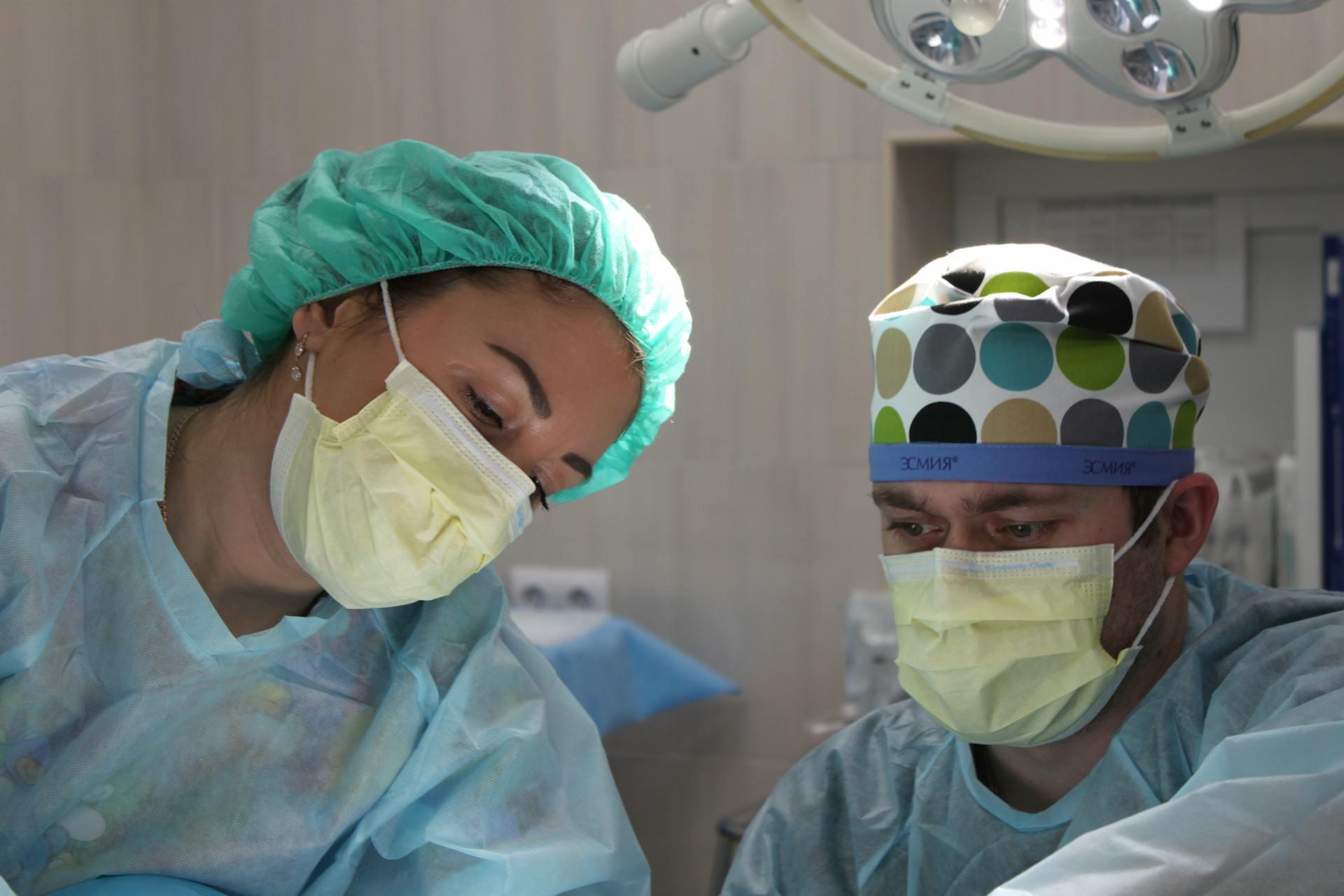Not everyone sees themselves going down the full-time university route when it comes to training as a nurse. Instead, many students choose to enrol in a nurse apprenticeship. by taking this alternative pathway, trainee nurses can gain real-world experience from day one by working in clinics, hospitals, or GP practices, all while studying part-time towards their recognised qualification. It's a fantastic way to learn the job, earn a decent wage, and avoid many of the tuition fees that come with a traditional degree. But what exactly does a nursing apprenticeship involve, and who is it for? Join the team at superprof as we take a closer look at why nurse apprenticeships are becoming a popular choice for future nurses across the UK.

Key Takeaways: Nurse Apprenticeships at a Glance
- What You'll Earn: You'll be given a salary while you train, no tuition fees to pay
- Qualification: Level 5 Nursing Associate or Level 6 Nursing Degree
- Length of Training: 2 - 4 years, depending on the route
- Where you'll work: NHS trusts, private hospitals, GP surgeries, community or dental clinics
- Entry Requirements: GCSES in English and Maths, often a level 3 qualification like A levels or BTEC
- Career Outcome: Eligible to register with the Nursing and Midwifery Council (NMC)
- Apprenticeship Pathways: Nursing Degree Apprenticeship, Dental Nurse Apprenticeship, Mental Health Nurse Apprenticeship
For a in depth look at all the routes into nursing, consider taking a look at our full nursing career pathway overview
What is A Nursing Apprenticeship?

Essentially, a nursing apprenticeship is a practical, work-based route into the profession that allows you to train while being employed in a healthcare role. Rather than following the traditional nursing degree route at your local university, you'll spend most of your week working alongside experienced staff in places like hospitals or care homes, gaining key skills you'll need to one day become a successful nurse yourself. However, in your spare time, you'll still be expected to study the more academic side of nursing through a partner university or training provider.
All UK nurse apprenticeships are regulated by the NMC. Completing an NMC approved programme means you'll be able to register and practice as a nurse, just like those who followed the full-time university route
What to Expect From a Nurse Apprenticeship
Curious about how things will work during your nurse apprenticeship? Take a look at the list below to get a clearer picture of what the journey involves.

What Types of Nurse Apprenticeships Are There in The UK?
A full-time nursing apprentice usually works around 30 to 38 hours per week, including off-the-job study time.
If you're seriously considering a nurse apprenticeship, it's important you know which path will best suit your personality, skills, and career goals (yes, there is more than one apprenticeship route to choose from). Some are designed to qualify you as a registered nurse (with the NMC), while others (like the dental nurse option) fall under the regulation of other governing bodies like the General Dental Council (GDC).
Nursing Associate Apprenticeship (Level 5)
Not sure you want to immediately jump into a full nursing degree but want to work in a support-type role? Enrolling in this apprenticeship allows you to deliver care with registered nurses. Overall, it's a brilliant stepping stone if you're keen to develop your confidence in your nursing skills while entering the profession gradually.

What's more, once you've got your hands on your nursing associate qualification, it's also possible to progress from nursing associate to fully registered nurse by starting the second year or a nursing degree.
Registered Nurse Degree Apprenticeship (Level 6)

This is the primary apprenticeship route for those wanting to qualify as a Registered Nurse. It covers one of the four NMC recognised fields: Adult Nursing, Children's Nursing, Mental Health Nursing, or Learning Disability Nursing.
Mental Health Nurse Apprenticeship (Level 6)
This pathway is a specialist branch of the Registered Nurse Degree Apprenticeship that focuses entirely on mental health. As a trainee, you'll learn how to support people living with a range of complex psychological conditions like anxiety disorders, PTSD, and Bipolar Disorder

Dental Nurse Apprenticeship (Level 3)

Though not a part of the NMC pathway into nursing, the Dental Nurse Apprenticeship trains students to assist dentists during procedures, manage equipment and materials, and support patients before and after they've undergone treatment.
How Does Pay and Funding Work in a Nursing Apprenticeship?
Apprentices in healthcare roles are usually paid according the Agenda for Change NHS pay scale. While salaries aren't set in stone and can vary slightly depending on where you live in the UK and the employer, the following is what you should expect to be paid in 2025.
| Nursing Associate Apprentice (Level 5) | Registered Nurse Apprentice (Level 6) | |
|---|---|---|
| Typical NHS Pay Band (2025) | Band 3 (training), Band 4 (post-qual) | Band 3–4 (training), Band 5 (post-qual) |
| Annual Salary Range | £22,816–£24,336 (Band 3) | £22,816–£28,407+ depending on role |
| Course Fees | Fully funded by employer | Fully funded by employer |
| Training Costs to You | £0 | £0 |
| Paid Study Time | 20% of contracted hours | 20% of contracted hours |
| Employer Benefits | Pension, holiday pay, sick pay | Pension, holiday pay, sick pay |
| Extra Support Available | Travel, childcare, housing | Travel, childcare, housing |
How to Apply for a Nursing Apprenticeship Role in the UK

Decided a nursing apprenticeship is right for you? Well, your next step is finding a job position that offers said apprenticeship. Unfortunately, these roles aren't filled through UCAS like most university courses (they do list apprenticeship vacancies in partnership with employers, however), so you'll need to spend some time browsing for vacancies through the NHS and private healthcare employers, as well as on various online job boards.
Struggling to find job options in your area? Check out these platforms:
- NHS Jobs - most NHS-based apprenticeships are listed here
- Find an Apprenticeship - the official UK government site for apprenticeships in the UK
- UCAS Apprenticeships - nursing and healthcare listings can also be found here.
If you're an international applicant, make sure to check out the international entry routes for nurses to better understand what qualifications or work rights you need to train in the UK.
Set up job alerts on your phone or computer so you get notified the exact moment a new job opportunity opens in your area. Roles in healthcare can often be pretty competitive (especially if they offer apprenticeships) so you'll need to be quick on your toes!
What Do You Need to Apply?
Before clicking apply, make sure you've got everything in order so your application has the best chance of landing you an interview. Most health care employers offering nursing apprenticeships will expect you to present/ have the following:
- A detailed CV that shows your history working in healthcare or other roles. Make sure you include any relevant experience, like part-time work, volunteering, or anything else that might be of interest to your employer
- A personal statement that feels genuine and outlines why you want to train as a nurse. Here, it's a good idea to talk about why you feel you'd be a great fit for nursing, what you love about caring for patients, and your strengths as a worker
- Proof of your English and Maths Qualifications (generally GCSEs at grade 4/C or above, or Level 2 Functional Skills). More often than not, these are mandatory
- A Level 3 qualification like A-Levels, a BTEC national diploma, T levels, or an Access to HE Diploma (this is essential if applying for a level 6 nursing apprenticeship)
- Two references from people who know you personally and have good things to say about your character and work ethic. Ideally, one reference should come from someone who has supervised you in a job or placement environment, while others can come from somebody like a teacher or tutor
Make sure you have a word with your manager before applying. Establishments like the NHS often offer apprenticeship roles exclusively to existing staff first. Plus, they may even fast-track your application or offer extra support during the process
Summarise with AI:
























